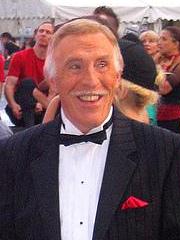A Quote by Randy Pausch
The size of your audience doesn't matter. What's important is that your audience is listening.
Related Quotes
When someone says "that resonates with me" what they are saying is "I agree with you" or "I align with you." Once your ideas resonate with an audience, they will change. But, the only way to have true resonance is to understand the ones with whom you are trying to resonate. You need to spend time thinking about your audience. What unites them, what incites them? Think about your audience and what's on their mind before you begin building your presentation. It will help you identify beliefs and behavior in your audience that you can connect with. Resonate with.
If an audience finds themselves paying attention to how you made your film, you're sunk because that means they're unplugged from your story. What matters is what's unfolding on the screen, not how you put it there. It doesn't matter if it's red triangles or million dollar software if the audience doesn't care.
Acting is bad acting if the actor himself gets emotional in the act of making the audience cry. The object is to make the audience cry, but not cry yourself. The emotion has to be inside the actor, not outside. If you stand there weeping and wailing, all your emotions will go down your shirt and nothing will go out to your audience. Audience control is really about the actor
The live audience, just getting an instant reaction off of an audience is the best part[of the show]. Being in the studio and working on your songs and listening to them back and doing all that - it's a lot of fun, but having that instant reaction and being able to work and vibe with an audience is the best part.
As an actor, you should always keep your trump card hidden from your audience. I want the audience to keep expecting more and more from me. I want to do 'different' work - good and memorable roles - so that audience appreciate me more. That's why I love to surprise my audience with something they never expect me to do.




































